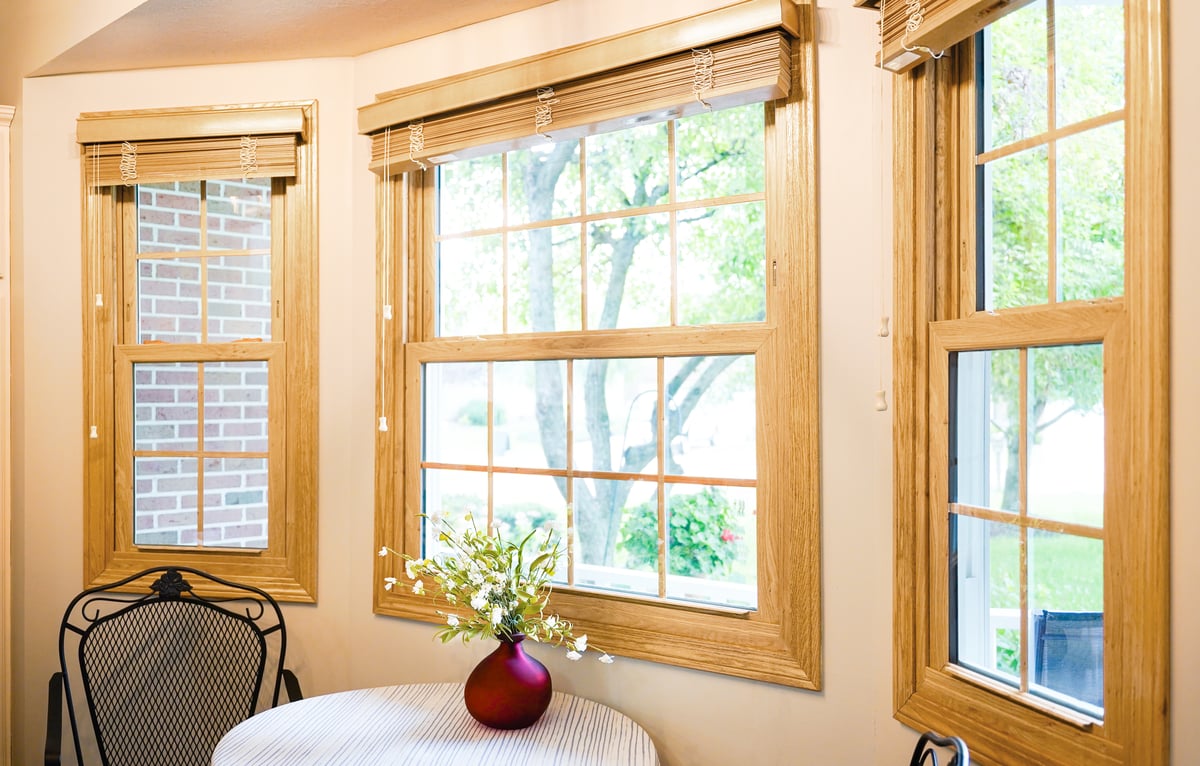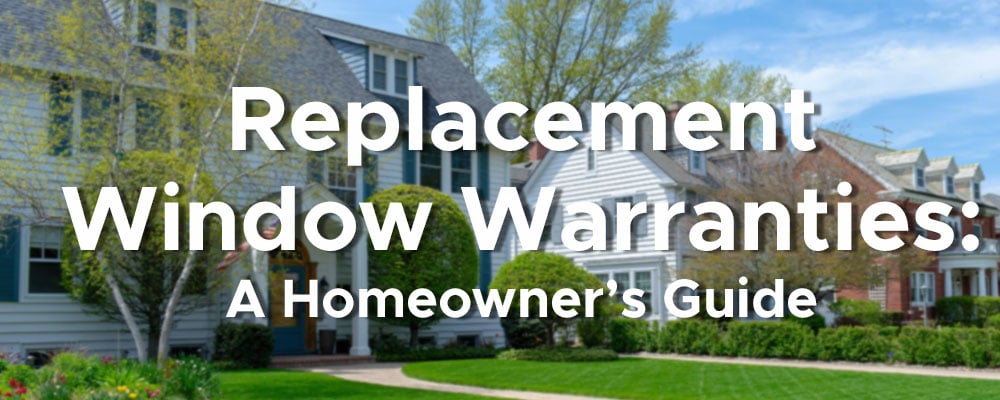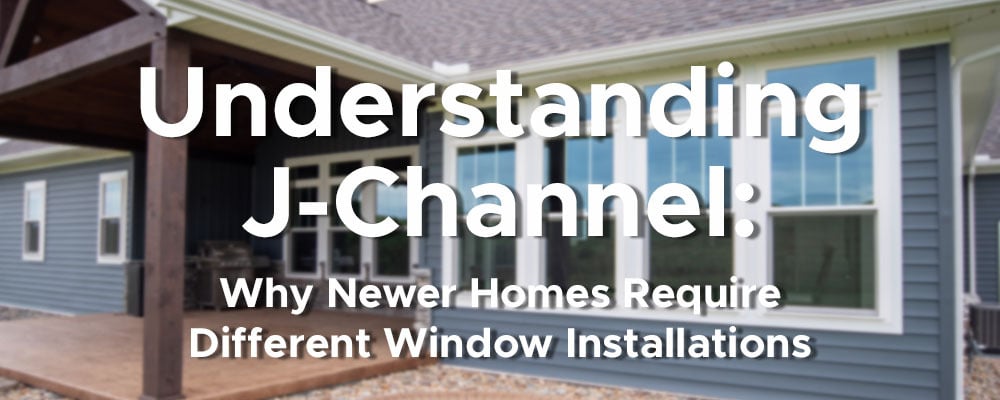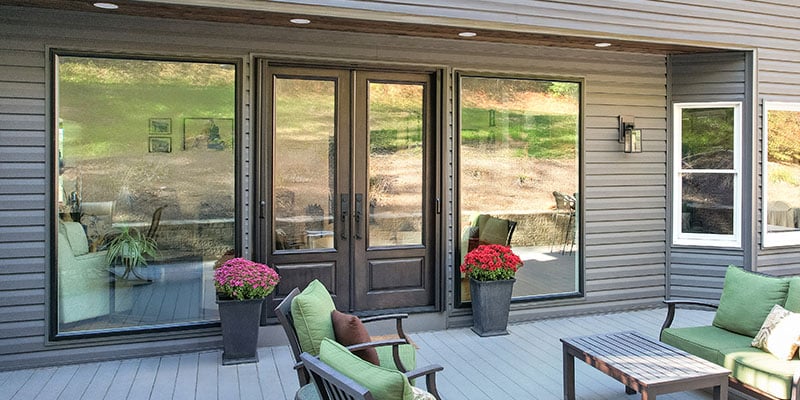What Are the Pros and Cons of Vinyl Windows for Pittsburgh Homes?
July 17th, 2024
7 min read
By Chris Saxton

Are you trying to decide if vinyl windows are the right choice for your home but keep hearing conflicting opinions? Do terms like “low maintenance” and “cost-effective” sound appealing, yet you’re unsure how vinyl holds up in Pittsburgh’s ever-changing climate?
At Energy Swing, we’ve helped thousands of homeowners in Western PA navigate the complicated world of window replacements, and vinyl windows are one of the most common options we get asked about.
In this article, you’ll get a clear, unbiased breakdown of the biggest benefits and most common drawbacks of vinyl windows. We’ll also share how they compare to other materials like fiberglass, so you can confidently decide if they’re the right fit for your home, your budget, and Pittsburgh’s four-season weather.
What Are Vinyl Windows and How Do They Work?
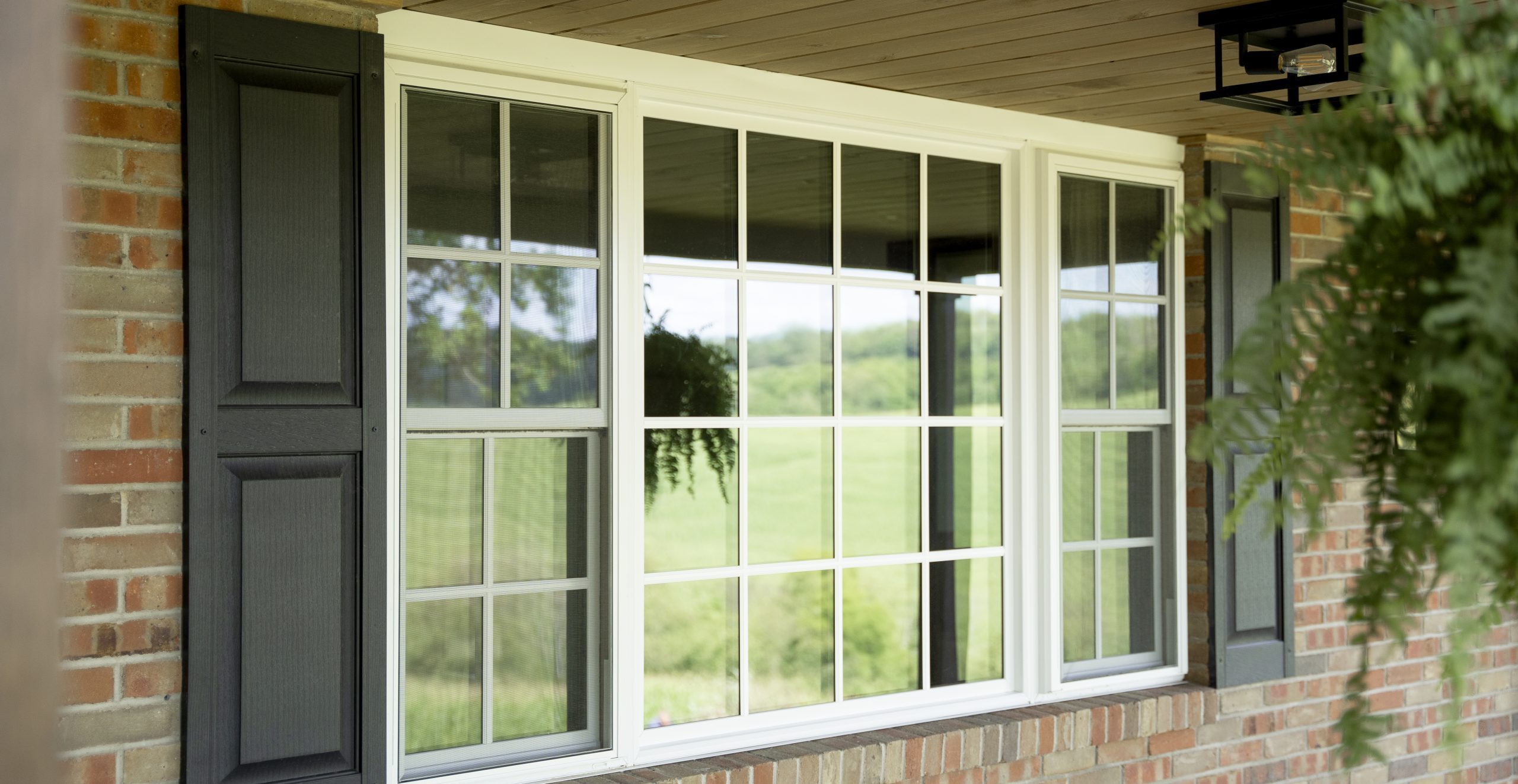
If you're researching window replacement options, chances are you've heard a lot about vinyl windows... but what exactly are they?
What Are Vinyl Windows Made Of?
Vinyl windows are made from polyvinyl chloride (PVC), a durable, moisture-resistant plastic commonly used in construction. The window frames are often multi-chambered inside, which helps with both insulation and structural strength.
Think of these internal chambers like insulation pockets; they reduce heat transfer and help block out noise.
Vinyl can also be reinforced with metal or composite materials for added durability, especially in higher-end models.
How Do They Work?
Vinyl windows function the same way as other types of modern windows with one key difference: the frame material.
-
You’ll find vinyl frames in all standard window types: double-hung, casement, sliding, picture, bay/bow, and more.
-
They’re often paired with insulated glass units (IGUs) which may include dual-pane or triple-pane glass, low-emissivity (low-E) coatings, and argon gas between panes to enhance energy efficiency.
-
The frame and sash design in vinyl windows helps seal out drafts and moisture when properly installed.
Vinyl is popular not just for its performance, but for the fact that it offers a clean, modern look with minimal maintenance requirements.
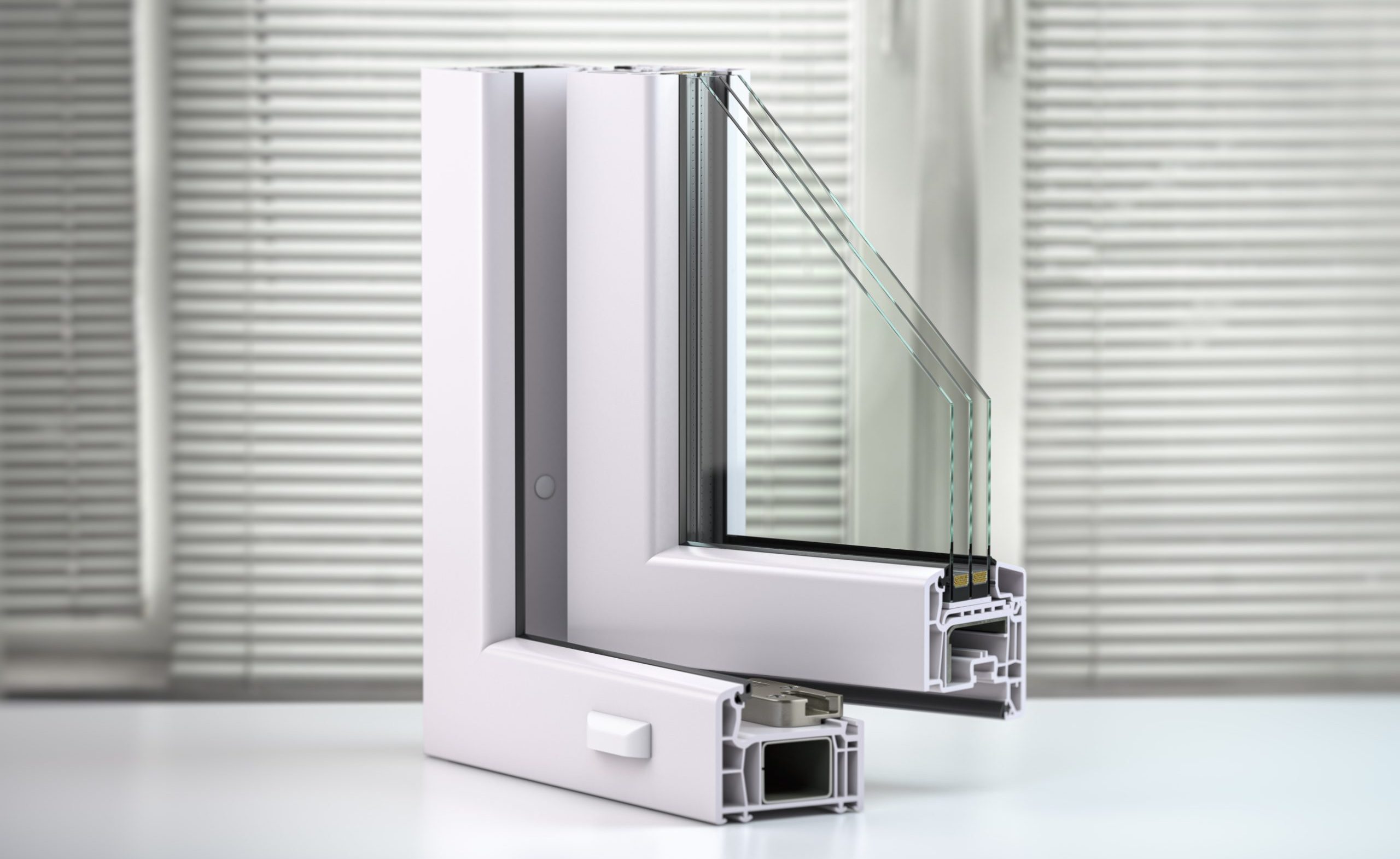
What Are the Biggest Advantages of Vinyl Windows?
Vinyl windows are one of the most popular window choices in the U.S., and for good reason. If you're looking for a cost-effective, low-maintenance upgrade, vinyl might check all the boxes. Here's 5 reasons why so many Pittsburgh homeowners choose vinyl:
They’re One of the Most Affordable Window Options
Vinyl windows are generally more budget-friendly than wood, fiberglass, or composite alternatives.
That makes them ideal if you’re:
- Replacing multiple windows at once
- Renovating on a set budget
- Planning to stay in your home for another 10–20 years
They offer great value without sacrificing performance, especially in standard-sized openings.
Vinyl Needs Very Little Maintenance
Forget painting, staining, or sanding. Vinyl frames are designed to:
-
Resist rot and insect damage
-
Withstand moisture and humidity
-
Maintain their appearance for years without much effort
A quick wipe-down is usually all it takes to keep them looking fresh.
Solid Noise Reduction
Live near a busy street or noisy neighbors?
Vinyl windows with insulated glass units can help dampen outside noise, making your home quieter and more peaceful.
Easy to Install and Widely Available
Because vinyl windows are so common, they’re easy to source and typically faster to install, meaning:
-
Shorter lead times
-
Less disruption during installation
-
Fewer supply chain headaches
Energy Efficiency That Cuts Utility Costs
Most vinyl windows are built with insulated, multi-chambered design that reduce heat transfer.
They may also include features like:
-
Low-E coatings
-
Argon or krypton gas fills
-
Double- or triple-pan glass
These features help keep your home comfortable in all four Pittsburgh seasons, while also reducing heating and cooling costs.
These benefits make vinyl windows a smart choice for many Western PA homeowners — especially those focused on value, simplicity, and energy performance.
Still unsure if vinyl is the right fit for your home? Dive deeper into how vinyl windows perform in Pittsburgh’s unique climate. Read Are Vinyl Windows Good for Pittsburgh Homes to get a full breakdown on what window material is best for Pittsburgh homes.
What Are the Downsides of Vinyl Windows?
While vinyl windows are a popular and affordable choice, they aren’t perfect for every homeowner or situation. It’s important to understand the potential drawbacks so you can make a fully informed decision.
Common Cons of Vinyl Windows
-
Limited Design & Color Options
Most vinyl windows come in standard colors like white or sandstone. If you're hoping for a specific finish, or want to match trim colors exactly, vinyl may not offer the flexibility you're looking for. -
Potential for Warping in High Heat
Low-end vinyl windows may become soft or warp when exposed to direct, prolonged sunlight, especially on south-facing sides of your home without shade. Reinforced or higher-quality vinyl helps reduce this risk. Pittsburgh’s weather isn’t extreme like Phoenix, Arizona, but large temperature swings still matter. -
Difficult to Repair
If a vinyl window frame cracks or gets damaged, it usually can’t be patched or refinished. In most cases, the entire sash or frame needs to be replaced, unlike wood or fiberglass which can be repaired more easily. -
May Not Add as Much Value in High-End Homes
While perfectly functional, vinyl windows may not carry the same resale appeal as wood or fiberglass, especially in upscale neighborhoods or custom builds.
Are Vinyl Windows a Good Choice for Homes in Pittsburgh?
If you live in the Pittsburgh area, you already know that our climate throws a little bit of everything at your home: freezing winters, hot and humid summers, heavy rainfall, and seasonal temperature swings. So how well do vinyl windows hold up in these conditions?
Pittsburgh's Weather Demands Versatility
The performance of vinyl windows in Pittsburgh really comes down to quality and construction:
-
Cold Weather Performance:
Vinyl windows with multi-chambered frames and low-E, argon-filled glass can provide solid insulation during Western PA winters, helping you retain heat and lower energy bills. -
Heat & Humidity:
Good-quality vinyl won’t rot or swell like wood can. But in some cases, low-end vinyl may be prone to warping if exposed to constant, direct summer sun, especially on south-facing walls without shade.
For Pittsburgh homes, it's especially important to choose reinforced, well-constructed vinyl windows that are built for four-season climates.
How Do Vinyl Windows Compare to Fiberglass or Wood?
If you’re exploring window options, chances are you’ve also looked at materials like fiberglass or wood. So how does vinyl really stack up?
Let’s break it down in a quick side-by-side comparison:
| Material | Pros | Cons | Price |
|---|---|---|---|
| Vinyl |
|
|
$500 – $2,500 |
| Wood |
|
|
$1,000 – $4,500 |
| Fiberglass |
|
|
$800 – $4,000 |
| Aluminum |
|
|
$600 – $2,000 |
Vinyl works great if cost and simplicity are key. Fiberglass is ideal for long-term performance. Wood fits traditional, high-end homes.
Not sure which material fits your goals best? Check out our full breakdown in Vinyl vs. Fiberglass Windows: Which Is Better for Your Pittsburgh Home?
How Long Do Vinyl Windows Last?
One of the most important questions homeowners ask when considering vinyl windows is: “How long will they actually last?” While vinyl windows are known for being low-maintenance and cost-effective, their lifespan can vary depending on quality, installation, and exposure to the elements.
Average Lifespan of Vinyl Windows
In most cases, well-made vinyl windows last between 20 to 30 years.
Their durability depends on several factors:
-
Installation quality – Poor installation can lead to air or water leaks, which shorten a window’s lifespan.
-
Climate exposure – In areas with strong sun or extreme temperature shifts, lower-quality vinyl may warp or crack sooner.
-
Material construction – Not all vinyl windows are created equal. Higher-end models with multi-chambered frames and reinforced sashes will typically last longer.
Pittsburgh's four-season climate makes it especially important to choose vinyl windows rated for energy efficiency and temperature durability.
How Much Do Vinyl Replacement Windows Cost in Pittsburgh?
When it comes to window replacement, price is one of the first things homeowners want to know, and vinyl windows are often appealing because they’re considered a budget-friendly option. But how much do they actually cost?
Average Cost of Vinyl Windows in Pittsburgh
On average, vinyl replacement windows in the Pittsburgh area cost $1,000 to $2,200 per window.
Read our full breakdown of vinyl window pricing in Pittsburgh for even more detail.
Several factors affect where your project falls on the pricing spectrum:
| Tier | Features & Options | Price |
|---|---|---|
| Standard Features |
|
$1,200 – $1,500 |
| Upgraded Features |
|
$1,500 – $2,200 |
| Premium Features |
|
$2,200+ |
Keep in mind: In Pittsburgh, our weather varies dramatically throughout the year — from freezing winters to humid summers. Choosing vinyl windows with multi-chambered frames and energy-efficient glass can help you lower energy bills and stay comfortable year-round.
Should You Choose Vinyl Windows for Your Home?
Choosing the right window material comes down to what matters most to you — your budget, your long-term plans for the home, your aesthetic goals, and how much maintenance you’re willing to take on.
Vinyl Windows Might Be Right for You If:
- You're looking for a cost-effective solution that still delivers good insulation and curb appeal.
- You want low-maintenance windows that won't rot, rust, or require regular repainting.
- You’re planning to stay in your home for the next 20 to 30 years, not necessarily for life.
You live in a climate like Pittsburgh, where a well-constructed vinyl window can handle seasonal weather shifts with the right glass and frame design.
But You Might Want to Consider Other Materials If:
- You're looking for maximum design flexibility or a painted frame finish.
- You want longest-term durability — fiberglass or composite windows typically last longer.
You’re renovating a high-end or historic home where wood’s appearance matters more than maintenance.
So, What's Next?
Now that you’ve explored the key advantages and disadvantages of vinyl windows, you’re better equipped to decide whether they’re the right solution for your home improvement goals.
If you’ve been torn between affordability and long-term performance, you now understand how vinyl windows perform, especially in a climate like Pittsburgh’s.
Still unsure if vinyl is the best choice? Take the next step and compare it directly to fiberglass with our Vinyl vs. Fiberglass Windows guide; it breaks down everything from energy efficiency to durability.
At Energy Swing, we specialize in helping homeowners like you feel confident about every aspect of your window replacement — from the materials to the installation process. If you're ready to talk through your options, reach out for a free consultation today.
Vinyl Window FAQ
1. Are vinyl windows durable enough for Pittsburgh’s four-season weather?
Yes, quality vinyl windows perform well in Pittsburgh’s mix of freezing winters, humid summers, and rapid temperature swings. Multi-chambered vinyl frames paired with insulated glass help prevent drafts, and reinforced vinyl minimizes the risk of warping or softening on sunny exposures.
2. How long do vinyl windows typically last?
Most well-constructed vinyl windows last 20–30 years, depending on installation quality, sun exposure, and overall maintenance. While vinyl can’t be refinished like wood, higher-end vinyl with reinforced frames and insulated glass tends to offer the longest lifespan.
3. Are vinyl windows the most cost-effective option for replacement projects?
In many cases, yes. Vinyl windows are usually the most budget-friendly choice, with Pittsburgh averages ranging from $1,000 to $2,200 per window. They offer strong energy efficiency and low maintenance costs, making them ideal for homeowners replacing multiple windows or working within a clear budget.
Chris Saxton is a Client Consultant at Energy Swing Windows and has been with the company since 2001. He is passionate about finding the best solutions for every homeowners project while educating them along the way.
Topics:

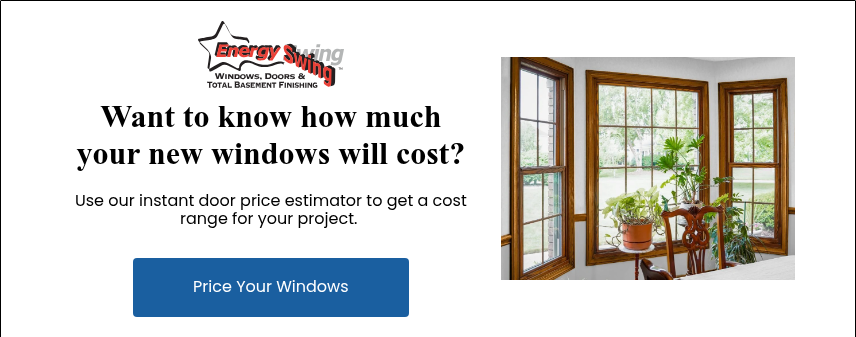












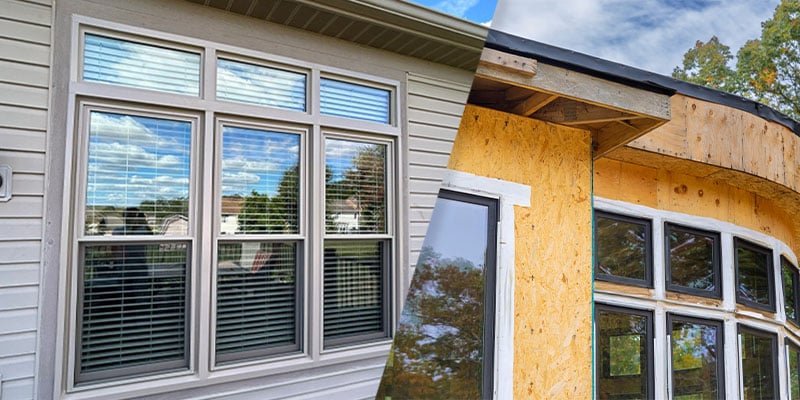
.jpg?width=1200&height=550&name=Copy%20of%20Copy%20of%20ESW%20Collage%20Template%20(3).jpg)
